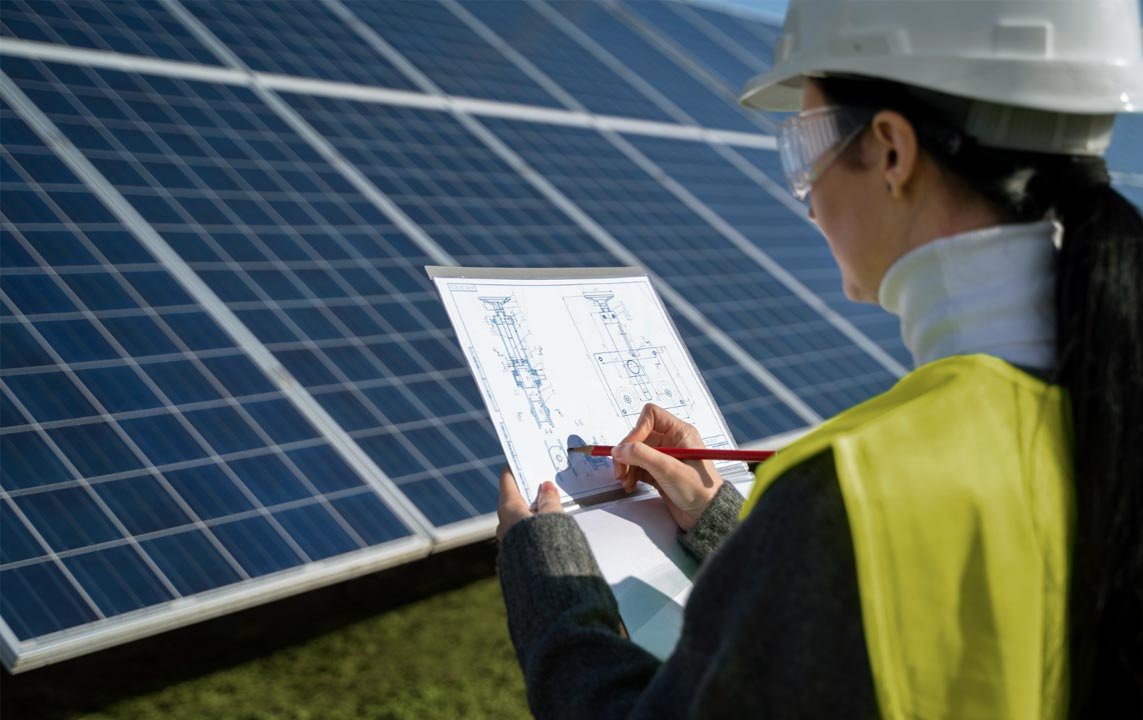The increasing reliance on solar energy marks an important step in our journey toward adopting greener practices worldwide. However, as solar panels reach the end of their productive lifespan, typically around 25-30 years, the need for their responsible decommissioning becomes crucial. Taking apart solar panels involves carefully dismantling the setup, dealing with waste materials properly, and finding new uses for the site. All of this is done to keep any harm to the environment as low as possible. We need this process because it stops potential ecological problems and lets us retrieve useful stuff from old products. Using those reclaimed parts in fresh panel production keeps the green tech sector running smoothly without waste.
Assessing the Need for Decommissioning
Determining the right time to decommission solar panels is pivotal. You’ll need to consider both the efficiency of the panels and what shape they’re in before making a decision. Criteria include significantly reduced efficiency, irreversible damage due to environmental factors, or updated technology making older panels obsolete. By doing routine audits and maintenance, you can better decide the right time to decommission machinery. This keeps energy production smooth and safety measures top-notch.
Environmental Considerations
Decommissioning solar panels must prioritize environmental conservation. Proper handling of materials like glass, metal, and particularly hazardous substances like lead or cadmium found in some older panels is crucial. Reducing how much we affect nature involves preventing dirt from getting polluted and dealing with trash thoughtfully. Following local and international environmental laws helps companies stick to their green commitments.
Economic Factors and Viability
Economic considerations are key in the decommissioning of solar panels. While the process incurs costs, notably in labor, transportation, and recycling, there are economic benefits to be gained from the resale of salvaged materials and potentially from the repurposed land. Doing a thorough cost-benefit analysis helps figure out if it’s smarter to refurbish or completely scrap old panels. This involves looking at things like how much you can still get for the materials and any potential savings from installing newer, more efficient ones.
Planning and Preparing for Decommissioning
Planning is a critical phase in the decommissioning process. Keeping things clear for everyone involves talking to investors, listening to what local folks have to say, and working closely with regulators. Preparation also entails logistical planning, which includes procuring the necessary permits, arranging the appropriate disposal or recycling services, and scheduling the decommissioning at a time that minimizes disruption to energy supply for any grid-connected setups.
Decommissioning Process
The actual decommissioning of solar panels is a meticulous process that should follow best practice guidelines to ensure safety and efficiency:
Safety Briefing and Tool Check: Begin with a comprehensive safety briefing and ensure all tools and equipment are suitable for the task.
System Shutdown: Safely disconnect the solar panels from the electrical grid and ensure all power sources are de-energized.
Dismantling: Carefully dismantle the panel structures, mountings, and associated hardware.
Sorting of Materials: Sort materials into categories for recycling, reuse, or disposal as per environmental guidelines.
Transportation: Arrange for the transport of these materials to their respective processing locations, using environmentally friendly methods where possible.
Health and Safety Compliance
Health and safety are paramount during the decommissioning process. Adhering to strict safety protocols protects not only the workers involved but also the public and the environment. Personal protective equipment (PPE), proper training on handling hazardous materials, and adherence to legal safety standards are all critical components. Performing regular audits along with frequent inspections helps maintain compliance effectively.
Solar Panel Decommissioning Services
Solar panel decommissioning services help safely remove and dispose of old or non-functioning solar panels. This process includes dismantling the system, recycling materials, and handling hazardous components responsibly.
A number of firms handle solar panel decommissioning, covering tasks such as consulting on optimal methods and taking charge of the whole procedure start to finish. Managing your solar panel removal process from start to finish smoothly is guaranteed – not only by following safety protocols but also by keeping an eye on environmental impact according strictly adhered to legally mandated standards, as well as established methods within the industry too!
Recycling and Waste Management
Effective waste management and recycling are fundamental aspects of solar panel decommissioning. Best practices include:
Recycling: Almost 90% of the materials in solar panels can be recycled and used in the manufacture of new panels or other products.
Waste Segregation: Different components like glass, aluminum frames, and silicon cells should be segregated for specialized recycling processes.
Partnering with Certified Recyclers: Engage with certified recyclers who comply with international standards for environmental protection.
Post-Decommissioning Site Restoration
After decommissioning, restoring or repurposing the site is crucial to return the land to its original state or prepare it for new projects. Remediation might be necessary if contamination has occurred, and careful planning is required to determine the next suitable use of the land in consultation with local communities and stakeholders.
Innovations and Future Outlook
Innovations in recycling technologies and methods are enhancing the efficiency of the decommissioning process. Imagine using robots to take apart old solar panels or advanced chemicals to extract pure silicon—these emerging technologies could make recycling more efficient and profitable. It’s an exciting step forward for the industry!
Conclusion
Finally wrapping it all together, we’ve touched upon numerous aspects throughout our talk, which should give anyone interested much food for thought going forward! Your engagement is greatly appreciated—cheers till next time!
Properly decommissioning solar panels plays an important role in the lifespan of any solar setup. Embracing tried-and-true practices along with hiring experienced professionals for system shutdowns—and considering their impact on our economy as well as our planet—allows the solar field to uphold its dedication toward a greener future. This method helps cut down on environmental harm while also boosting the industry by promoting a circular economy. It’s a win-win for both nature and business growth.


